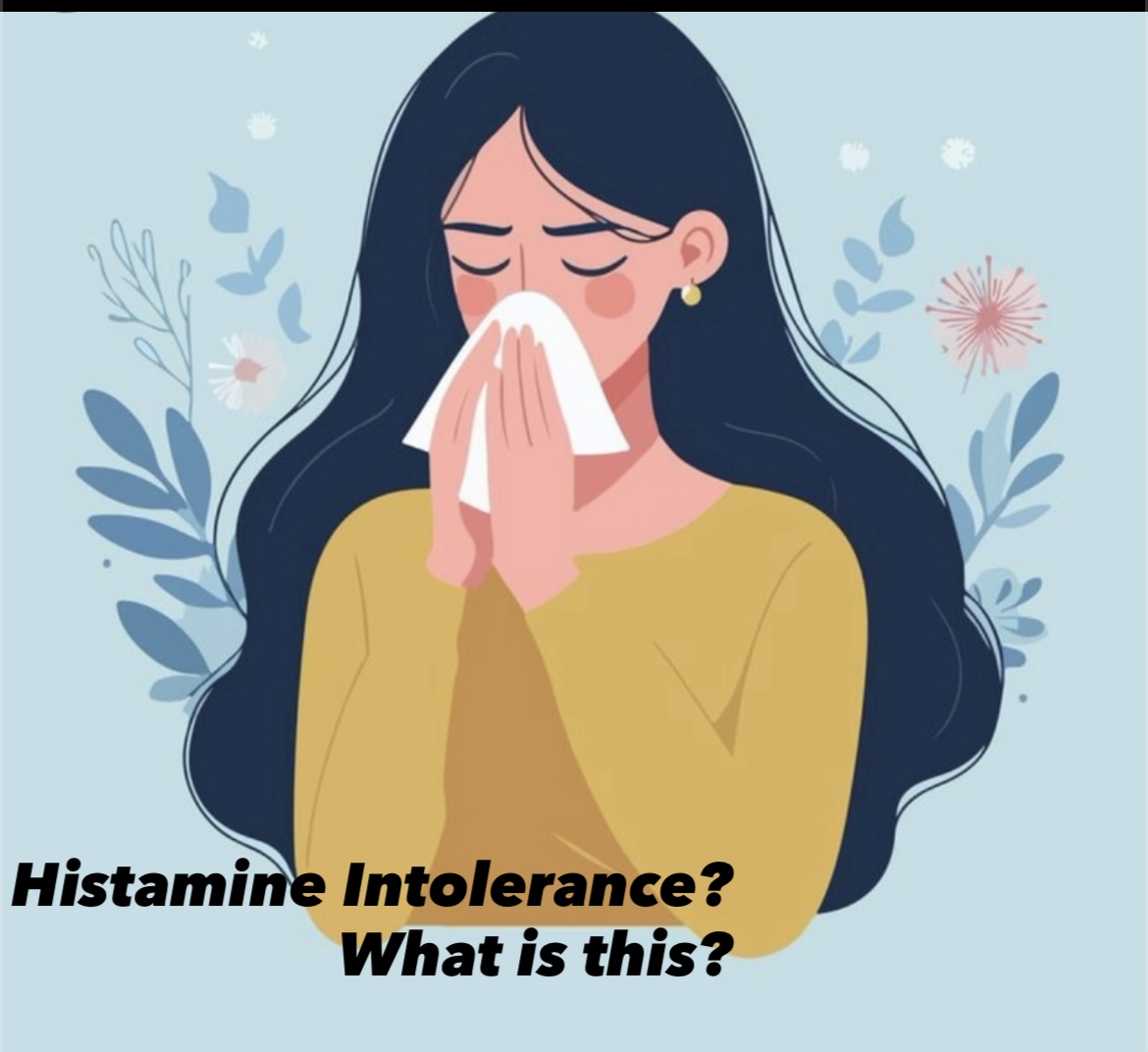Histamine and Histamine Intolerance


What is Histamine?
Histamine is a chemical made and stored in our mast cells. We get histamine in two ways:
-
It’s produced naturally in our bodies
-
We get it from certain foods and drinks that are naturally high in histamine
We need Histamine and it’s vital for:
• Responding to allergic reactions and inflammation
• Supporting digestion
• Regulating sleep
• Acting as a neurotransmitter (affecting mood and focus)
However, if our bodies can’t break histamine down effectively, it builds up. This can cause a wide range of symptoms known as Histamine Intolerance (sometimes called “Histamine Dumping”).
Other contributing factors include air pollution and our genetics. Women with histamine intolerance often have high histamine levels that their bodies can’t clear properly. Histamine, Women’s Health and Menopause.
During menopause, oestrogen plays a role. Oestrogen stimulates histamine production, so women starting HRT (Hormone Replacement Therapy) may sometimes notice histamine-related symptoms if their body struggles to regulate histamine.
It’s not only HRT; other medications such as some antibiotics, antidepressants, and anti-inflammatories can also worsen histamine intolerance. Signs of Histamine Intolerance
Symptoms may vary but can include:
• Night waking – Histamine levels peak during the night
• Allergic / Skin Reactions – Itchy skin, rashes, nasal congestion, hives
• Digestive problems – Bloating, nausea, constipation, diarrhoea, acid reflux
• General symptoms – Anxiety, palpitations, dizziness, fatigue, irritability
What Can You Do?
Reduce or avoid high-histamine foods/drinks, such as;
• Smoked cheeses
• Certain meats and smoked fish
• Fermented foods (sauerkraut, soy, kefir)
• Alcohol
• Processed foods
• Avocados
• Tomatoes
Lifestyle and dietary tips:
• Keep a food diary to spot triggers
• Focus on unprocessed, high-fibre foods
• Include foods rich in antioxidants, Omega-3, and Vitamin C
• Apples and onions are especially helpful – they contain quercetin, a natural antihistamine
• Manage stress
• Stay hydrated
• Consider over-the-counter antihistamines if advised.
How I Can Help.
If you think you are experiencing a histamine response to HRT:
• Please let me know straight away. I can adjust your HRT, advise you and support you.
• If your GP prescribed your HRT, please contact them first.
You can also book a consultation with me for tailored advice and HRT. enquiries@bourne2care.co.uk
Always discuss any health concerns with your GP surgery or call 111 if you need urgent advice.




